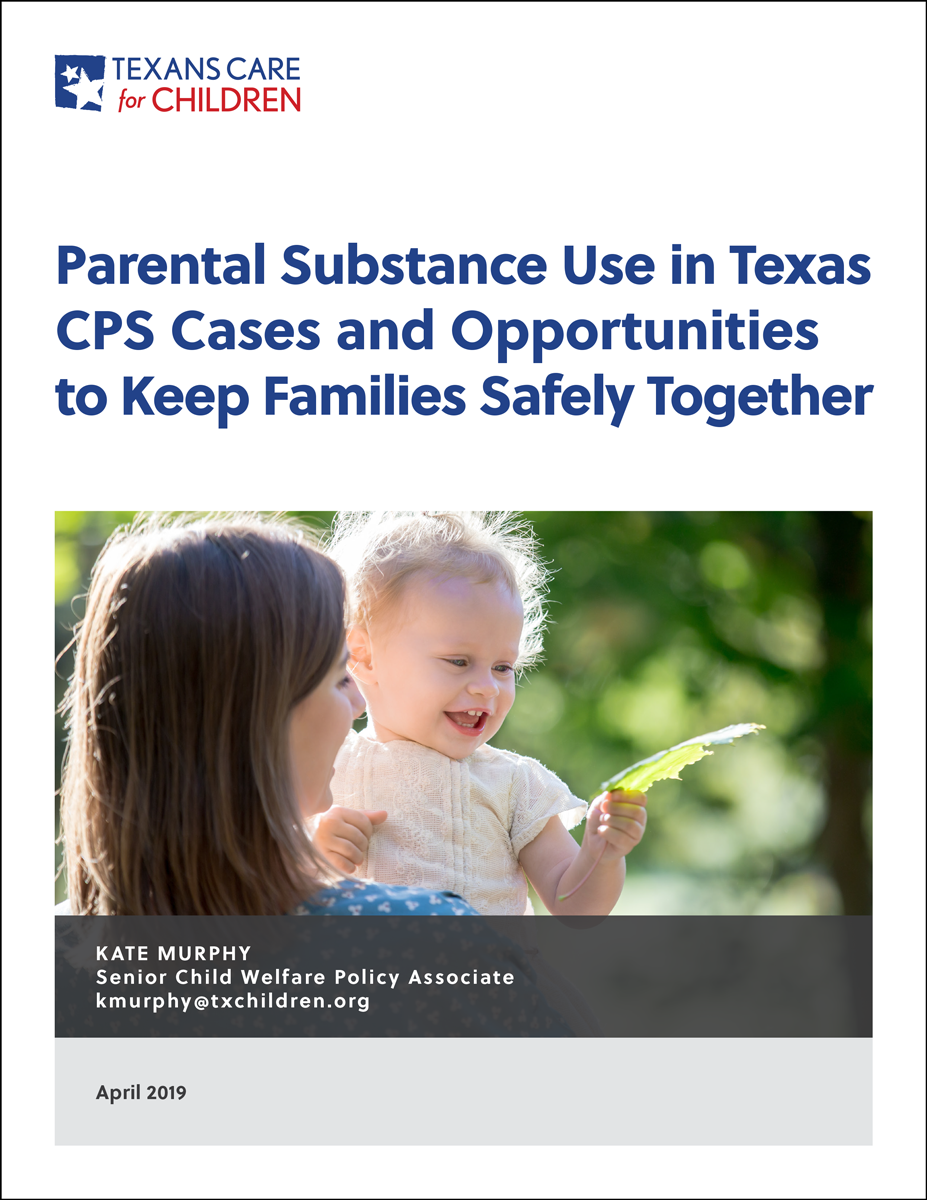
This report focuses on preventing entries into foster care by improving how the state interacts with families when a parent is using alcohol or drugs. In researching this subject, our goal was to understand how often children are entering foster care for reasons related to parental substance use, identify policy opportunities to safely reduce entries into care, and highlight areas where judges and attorneys can better support parents with substance use treatment needs in the early stages of a Child Protective Services (CPS) case.
Key findings from our research, which are explained in greater detail in the following pages, include:
- Texas is a “low-removal state,” removing a smaller percentage of children from their families compared to the national average.
- The rate of removals in Texas is increasing.
- Parental substance use is a contributing factor in most removals.
- Nearly all removals that involved parental substance use as a contributing factor are related to neglectful supervision rather than abuse.
- Most removals that involve parental substance use are for children under age six.
- Limited access to substance use treatment for parents makes it difficult to keep families together.
- Parental substance use alone is rarely the sole reason children enter foster care.
- In some communities, stakeholders report that parents’ use of illegal substances appears to be treated as abuse or neglect even though it may not endanger a child.
- Appointing an attorney to parents earlier in CPS cases may help keep more families safely together.



